Leonard A. Lauder Non-Residential Fellowship in Modern Art
About the Fellowship
The Leonard A. Lauder Research Center for Modern Art is the only center for scholarship on modern art located in an encyclopedic museum.
Each year, the Research Center offers four fellowships:
- a one-year Non-Residential Doctoral Dissertation Completion Fellowship;
- a two-year Pre-Doctoral Fellowship;
- a Post-Doctoral Fellowship, which may be one or two years in duration;
- and a one-year Mid-Career Fellowship for an established scholar with publication record commensurate with their career stage.
Learn more about the Pre-Doctoral, Post-Doctoral, and Mid-Career fellowships.
Fellowships with The Leonard A. Lauder Research Center for Modern Art offer an exceptional opportunity to conduct focused research on an independent project while contributing to the life of the Research Center.
Each year, the Research Center offers a Non-Residential Doctoral Dissertation Completion Fellowship. This fellowship is for PhD students working in the field of modern art in their final year of writing and who, for whatever reason, are unable to apply for a fellowship based in the Research Center at The Met.
Applicants should be in the final stages of writing their dissertation prior to submission to supervisors for approval and examination. They should not be engaged in archival or other primary research stages.
Only PhDs focused on modern art are eligible. By ‘modern art’ we mean architecture, drawing, design (including exhibition, graphic, interior, and stage design), film, painting, performance, photography, prints, and sculpture in the period from the last third of the nineteenth century through the 1960s, from any country, region, or culture.
PhD students from any country may apply, though advanced competence in English is expected (note that all application materials must be submitted in English).
Students living within daily commuting distance of the Museum are not eligible to apply and should consider applying for the Research Center’s residential Pre-Doctoral Fellowships. The Museum defines daily commuting distance as the ability to commute to and from the Museum in a single day, with the primary home address located in New York, New Jersey, Connecticut, or Pennsylvania.
Fellows may not hold a concurrent fellowship.
Some limited teaching work (up to four hours per week) during the fellowship may be permitted subject to the approval of the Head of Center.
For more detailed information see the Research Center’s Fellowships FAQs. (PDF).
Stipend: $30,000 for one year.
Travel: Non-Residential fellows will have the option to visit the Research Center for up to two weeks during the second half of the fellowship period. This will provide an opportunity to present their work in person and to meet the residential fellows, staff, and Advisory Committee members. Should the fellow wish to take up this option, the Research Center will cover roundtrip travel and accommodations. If a visit is not feasible, the Fellow will be required to deliver a virtual presentation on their work.
Health Insurance: An additional monthly stipend to offset the cost of health insurance is available, if the fellow is not covered by their home institution.
Information session: August 4, 2025, 1 pm ET; register now.
Application deadline: Friday, October 17, 2025, 5 pm ET
Notification date: All applicants will be notified by the last Friday in February following the application deadline.
Fellowship period: The Non-Residential Doctoral Dissertation Completion Fellowship is for 12 months between September 1, 2026, and August 31, 2027.
All applications must be submitted online and in English. Applications for the Leonard A. Lauder Non-Residential Doctoral Dissertation Completion Fellowship must include:
- A detailed description of the PhD project, not to exceed 1,000 words: Please describe your research rationale or arguments, the focus of your project, the outline of chapters and the number of chapters completed at the point of application. You may wish to include discussion of the research methods of your project.
- Plan for completion of the PhD, not to exceed 500 words,including schedule for submission of remaining chapters to advisors/supervisors, plans for revision of chapters, and proposed date of submission for examination.
- A personal statement, not to exceed 500 words. This is an opportunity for you to share information about you and your work that cannot be learned from a school transcript or CV.
- One completed sample chapter from the PhD (minimum 5,000 words)
- Curriculum vitae of education, professional experience, honors, awards, and publications
- Three letters of recommendation. Applicants must submit 3 academic recommendations, one of which must be from the lead advisor/supervisor, which should confirm the work completed to date by the applicant, and the feasibility of the proposed plan for submission. The remaining two recommendations should be from individuals able to comment on the quality of the applicants work. These letters should be uploaded directly by the recommenders, none of whom may be current Met staff, contractors, or volunteers. Recommenders must submit their letters in English.
- Official transcripts. You must upload a copy of your undergraduate transcript and graduate transcript. If you have transcripts from more than one institution for either category (undergraduate or graduate), please upload them as one combined file.
- An application profile. This section can be updated at any point throughout and after the application process.
What to Expect After Applying
The Research Center’s Advisory Committee reviews all applications and considers each application in its entirety. All applicants will be notified by the last Friday in February following the application deadline.
We do not offer individual feedback on unsuccessful applications, but we allow prospective fellows to apply on one further occasion.
Selection Criteria
The committee pays close attention to the following:
- quality of the PhD project
- feasibility of plan for completion
- quality of sample chapter
- record of academic achievement
- degree to which the supervisor supports the plan for completion and comments on the quality of work submitted
- degree of support given in the other two letters of recommendation
- contribution of the project to advance the history or understanding of modern art
- demonstrated need for the Non-Residential Fellowship
Life as a Met Fellow
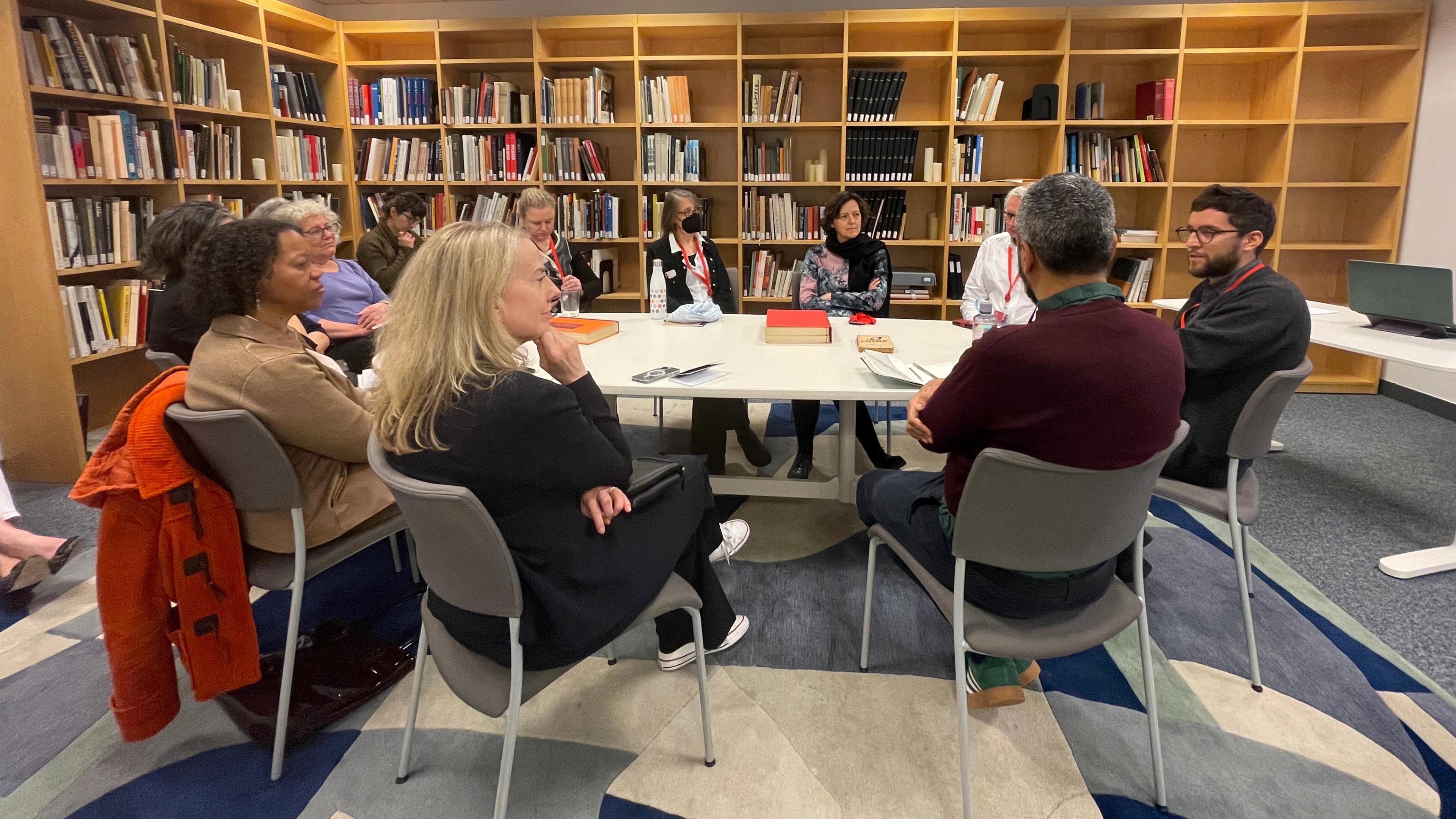
Writing Workshop
These workshops give fellows the chance to receive detailed feedback on writing related to their research project. Discussion often focuses on writing challenges that are shared, and issues of concern in developing new areas of study in art history. The Non-Residential Fellow joins virtually.
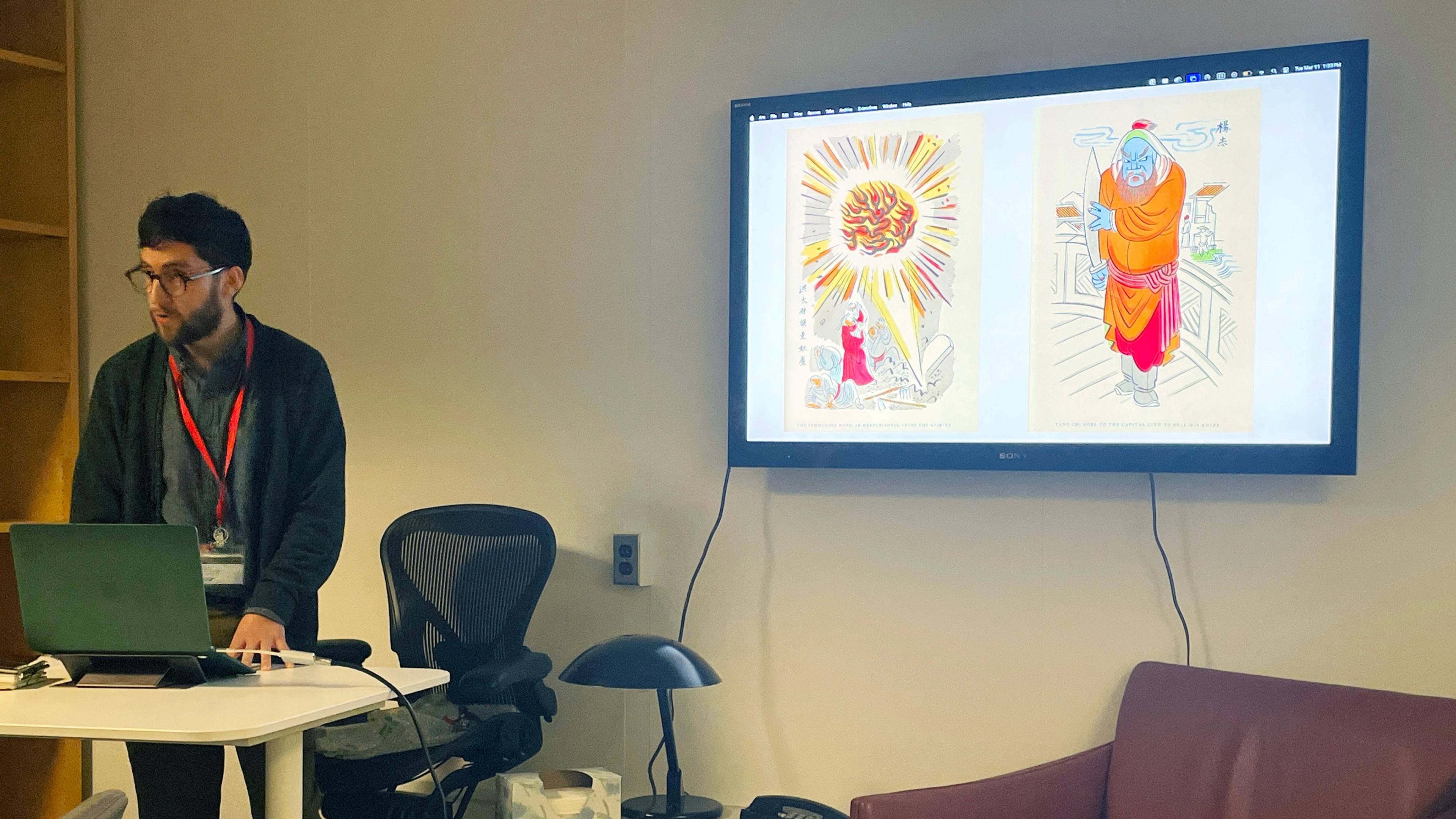
Works in Progress
In these meetings, fellows present an overview of their project and discuss research problems, working methods, visual analysis, or questions of structure. The Non-Residential Fellow joins these sessions virtually.
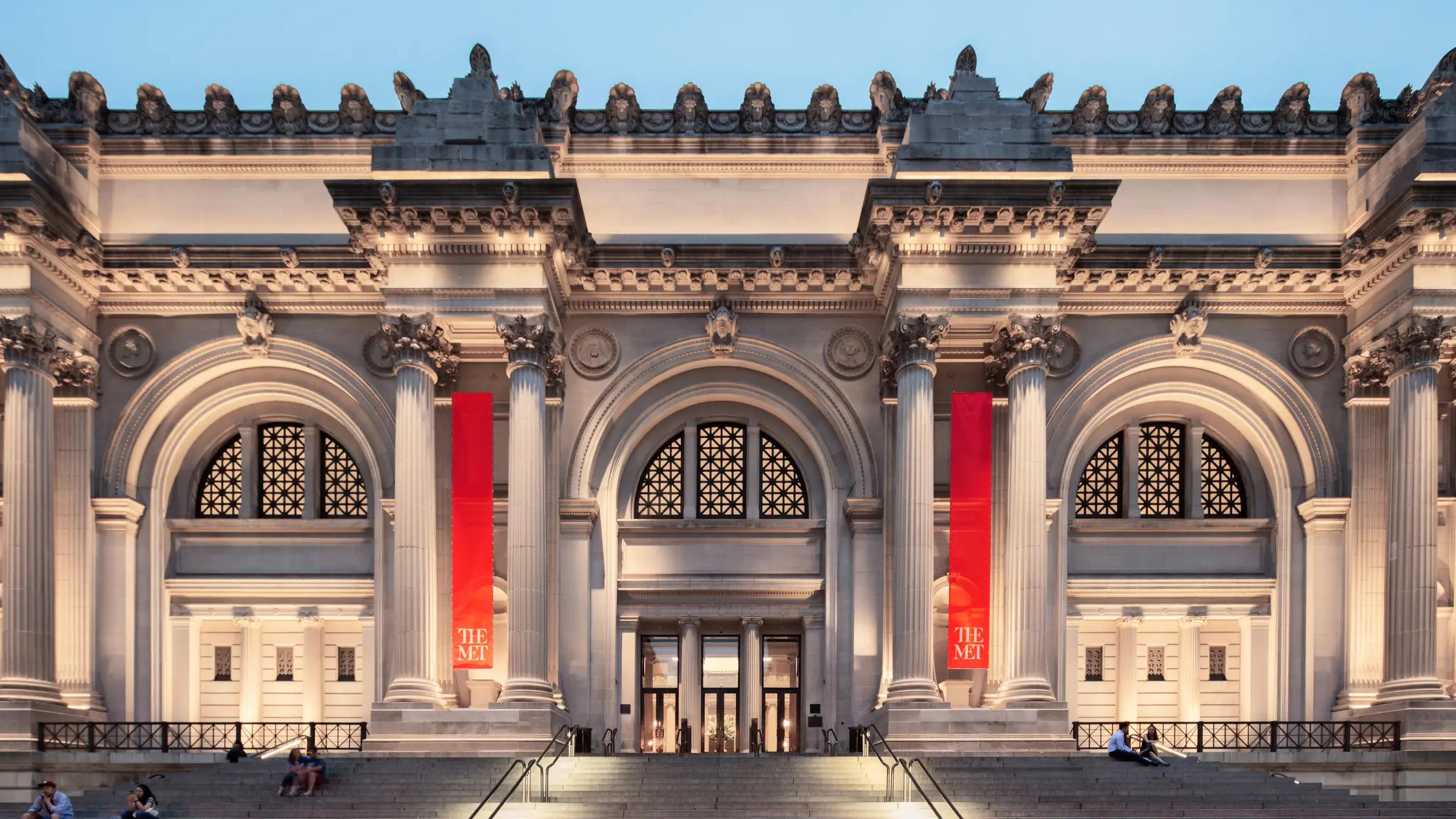
Virtual Meetings
The Non-Residential Fellow meets online with the Head of Center once a month to discuss progress, concerns, or questions.
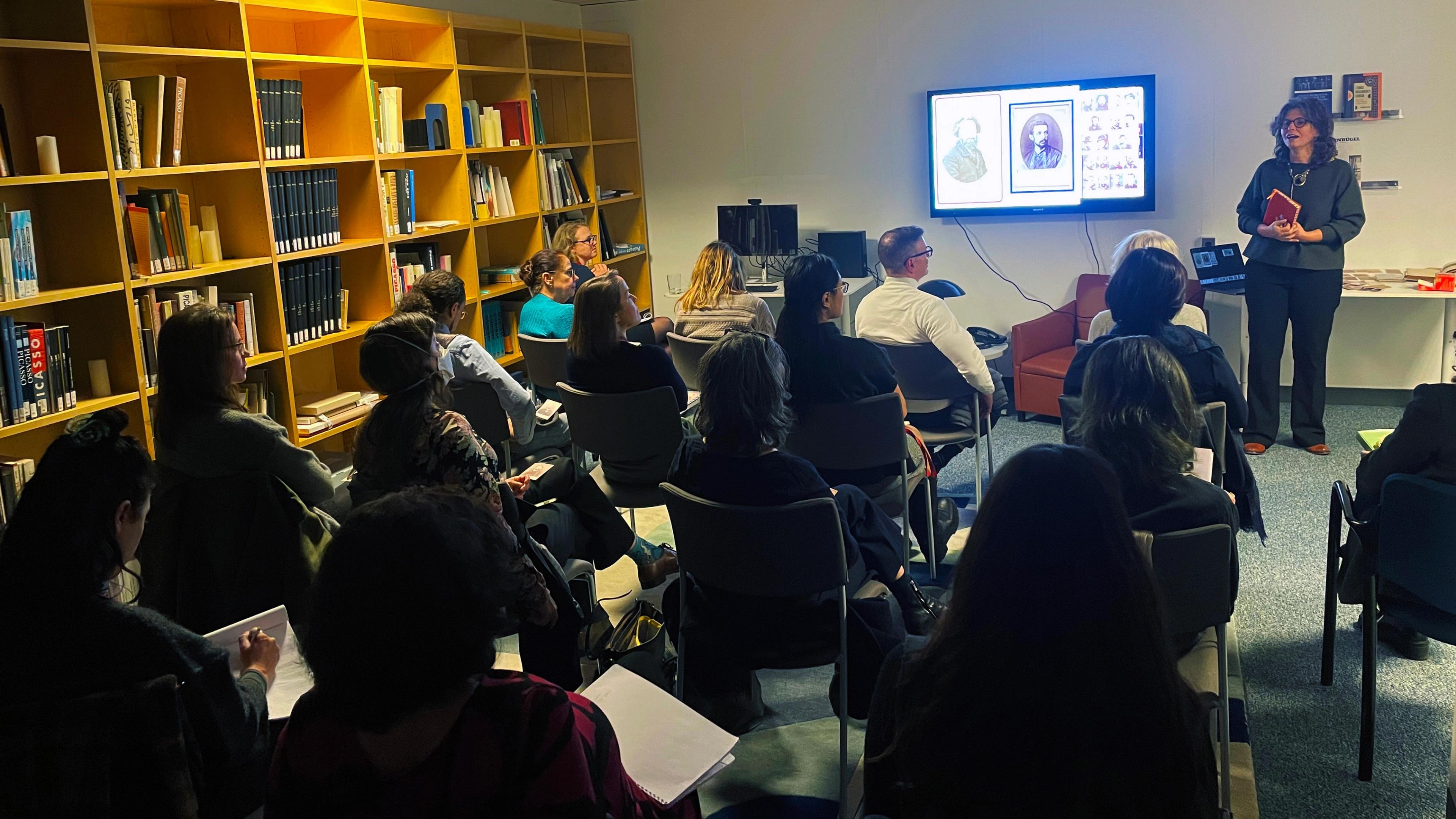
Public Talk
The Non-Residential Fellow delivers a talk on their work, either virtually or in person, to an invited audience and to Research Center Fellows.
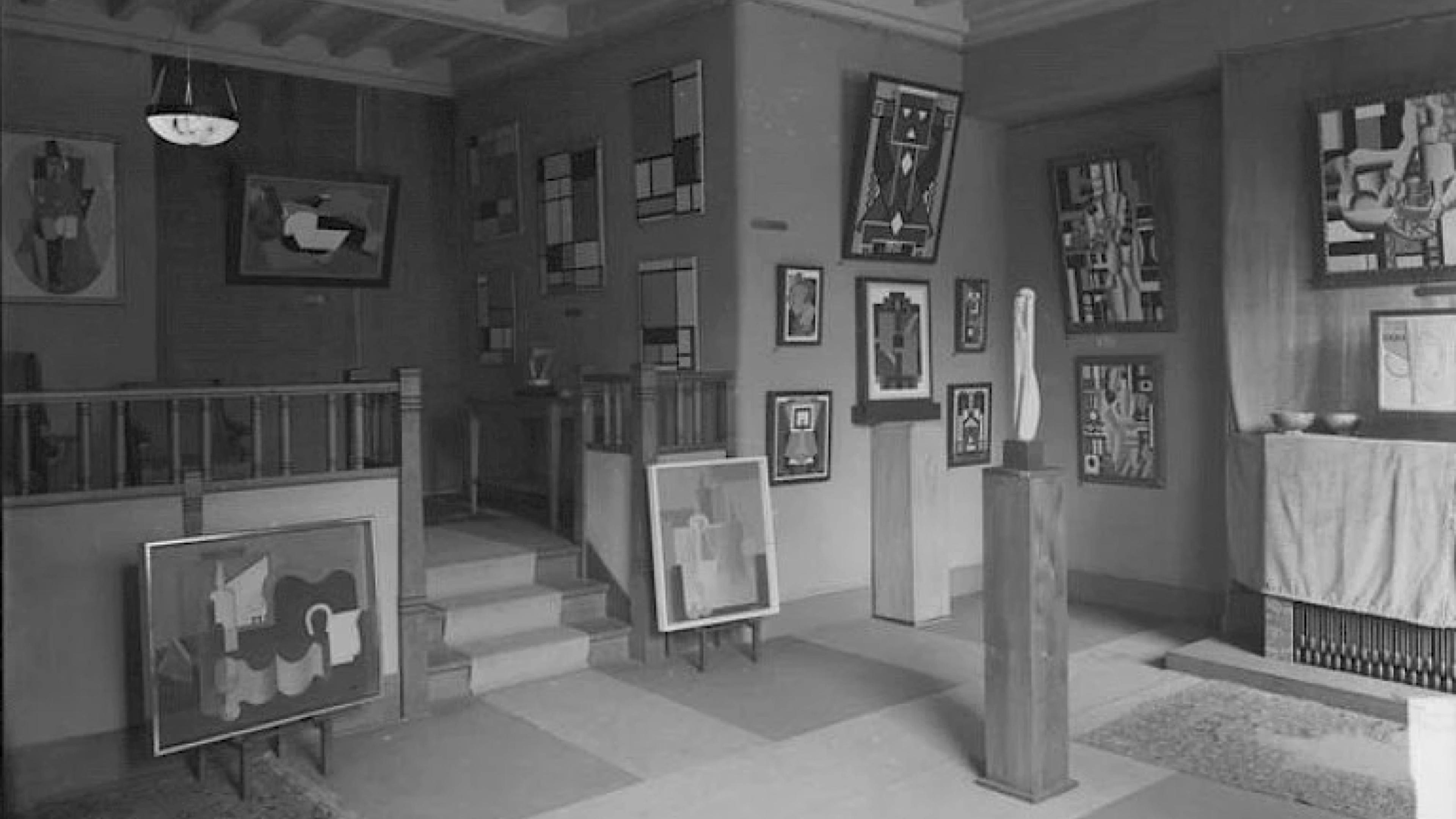
Modern Art Index Project
The Non-Residential Fellow contributes three entries to this highly respected and widely used online resource developed by the Research Center. With staff guidance, the fellow works work with an editor to finalize the texts before they are added to the Index.